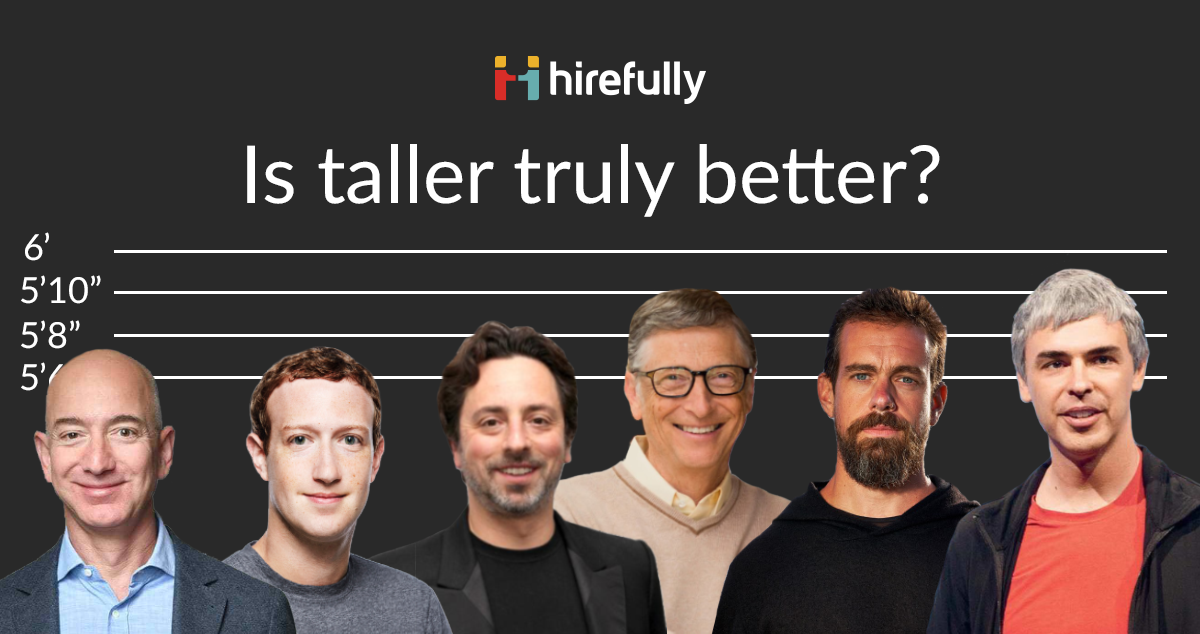
Last week, Donald Trump chose to replace Janet Yellen as the head of the Federal Reserve.
Do you know why? Trump thinks she’s too short.
For the record, Yellen is arguably, the most successful Federal Reserve chair the U.S. has ever had. But, these things were not enough, so she was replaced by Jerome Powell who is 7 inches taller.
Humans are flawed when it comes to reading people and intangibles that really matter. All too often, we don’t look past what’s staring us in the face.
In my practice, I coach employers to peel the onion and go deeper than the words on a resume. For example, many people are impressed when they see the word Harvard on a resume. Then they stop reading. What they failed to see was that it wasn’t a degree from Harvard; it was a one-day course.
Height is like Harvard. When we see someone tall, we’re usually impressed. The Halo Effect is at play when we form positive assumptions about a tall person’s capabilities based on nothing but a superficial attribute. In both cases, eyesight overrides thought.
Consider a job interview when the 6’2′ candidate walks into the room. Chances are he’s taller than you, and your primal brain likes him. Somehow, you’re feeling safe and secure. He will likely make your shortlist and maybe even land the job. This happens in presidential elections, sports scouting, and dating sites. All too often, height trumps (bad pun!) more sensible metrics.
The evolutionary theorists believe that humans learned to prefer tall people because their height was indicative of a successful hunter who was well-fed and could support the survival of others. My theory is that from birth and through our formative years, our caregivers are bigger than we are and they keep us safe, comfortable and fed. This is powerful conditioning at a crucial time in human development. As we age, however, we continue to believe there is safety to be had from those who are taller.
Tall kids grow up with constant praise for being born with tall genes. This positive reinforcement leads to self-confidence and superior social skills that follow all through their lives. To the inexperienced interviewer these attributes equate to competence. But, it’s hardly a no-brainer; some tall people are genuinely awesome; some are not.
In his 2006 bestseller, Blink, Malcolm Gladwell pointed out that 3.9% of American men were 6’2″ or taller. At the same time, 30% of Fortune 500 CEOs stood taller than 6’2″. This massive difference proves the unquestionable asset that is height in big companies.
There are also dozens of studies that show how tall people earn more than their shorter counterparts. Is this difference rooted in reality or a byproduct of human (mis)perception? I’m inclined to believe it’s the latter.
Does height have the same hidden powers in startups? Well, there appears to be a huge difference between reaching the top job in a multinational versus leading a startup that disrupts an industry.
If you Google today’s superstar founders you might come to the conclusion that founders are shorter than average. They just play big. Very, very big. It’s the fight in the dog, not the dog in the fight.
Amazon: Jeff Bezos 5’7”
Facebook: Mark Zuckerberg 5’7”
UBER: Travis Kalanick 5’8”
Google: Sergey Brin 5’8”, Larry Page 5’ 11’
Twitter: Jack Dorsey 5’ 10” (same as Bill Gates)
Apple: Steve Jobs 6’2”
Founders like these know how to weave, bob, pivot, hack, and adapt. They have grit, charisma, and risk-tolerance. It takes a lot of things to build a successful startup, but height isn’t one of them.
Full disclosure: I’m very rarely the tallest guy in the room.

